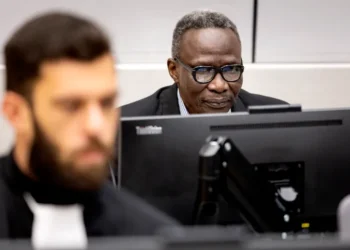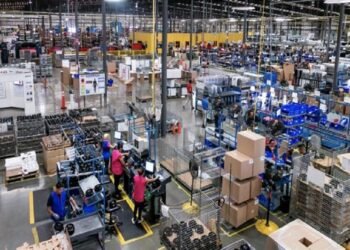The South African general elections are underway amidst a somber national mood, marked by concerns over high unemployment rates, inequality, power cuts, water shortages, and violent crime.
These issues have contributed to a significant shift in public sentiment towards the ruling African National Congress (ANC), which could potentially lose its majority for the first time since the end of apartheid 30 years ago.
Younger generations do not feel the same gratitude and loyalty to the ANC as many of their parents and grandparents do, for leading the successful fight for multi-racial democracy.
Polls indicate that the ANC might secure less than 50% of the national vote, a decline from 57.5% in the last elections in 2019, raising the possibility of South Africa’s first coalition government since the “government of national unity” during Nelson Mandela’s presidency.
“I certainly think the ANC is not going to make 50% … The best case seems to be 46-47%,” said David Everatt, a Professor at the University of Witwatersrand who conducted polls for the party from 1993 until South Africa’s most recent regional elections in 2021.
He added, “The mood is very, very low and many people attribute their unhappiness directly to the ANC.”
Millions more South Africans now have access to quality housing with electricity and running water than in 1994 when the ANC came to power.
But rising unemployment, along with corruption scandals and rolling power cuts that have lasted up to 10 hours a day in recent years, have contributed to a sense for many that the government no longer works for them.
Even Mandela’s home village of Qunu in the rural Eastern Cape no longer has piped water.
Democratic Alliance Faces Criticism For Favoring White People.

The Democratic Alliance (DA), the largest opposition party, is seen as more pro-business but faces criticism for allegedly favoring the interests of white people.
The DA is led by John Steenhuisen, who is white and took over the party leadership in 2019 when his black predecessor, Mmusi Maimane, resigned, claiming that his efforts to win over more black voters had been stymied.
It was formed after a merger agreement between the Democratic party, whose roots were in opposing apartheid in the former white-only parliament, and the New National party, the renamed National party that had ruled South Africa during apartheid.
The DA’s relationship with the NNP broke down after a year, and the NNP formed an alliance with the ANC instead.
The Economic Freedom Fighters (EFF), inspired by Marxism, and a new party called uMkhonto we Sizwe (MK), named after the ANC’s armed wing during apartheid, are among the opposition parties that could gain significant support.
“I’ll definitely vote EFF,” said Petronella, a 19-year-old.
“They stand for people and they keep their word.” She added.
The presence of MK, particularly in KwaZulu-Natal (KZN), where it is led by former president Jacob Zuma, adds complexity to the electoral landscape.
Zuma, 82, was president from 2009 to 2018, but was forced to resign amid corruption allegations that he denies.
Despite the challenges facing the ANC, including corruption scandals and dissatisfaction among younger generations who do not share the same loyalty to the party as older citizens, the ANC retains some advantages such as its historical legacy (“struggle credentials”), the power of incumbency, and control over state resources.
However, the uncertainty around voting intentions remains high, with a third of registered, likely voters undecided or refusing to disclose their choice.
The elections are considered the most competitive since the end of apartheid, reflecting the changing dynamics of South African politics and the public’s growing disillusionment with the current government.
READ ALSO: Ghana Edges Closer to Debt Relief as Bilateral Creditors Submit Final MoU





















